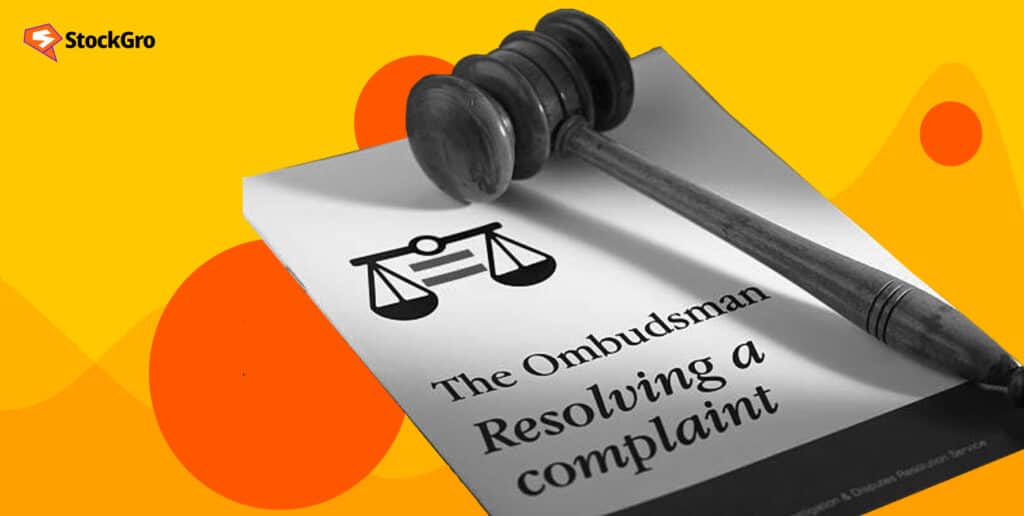
As far as financial transactions go, issues and disputes are bound to arise. However, when customers encounter problems with their banks, they often find themselves at a loss, unsure of how to seek resolution. This is where the Banking Ombudsman comes into play, serving as a beacon of hope for aggrieved customers. In this detailed guide, we will get into the intricacies of Banking Ombudsman redressal, exploring its significance, process, and effectiveness in resolving customer complaints against banks.
You may also like: Lost your wallet? Don’t panic, follow these steps!
What is a banking ombudsman?
The Banking Ombudsman, appointed by the Reserve Bank of India (RBI), operates as an impartial entity tasked with resolving customer grievances concerning banks. Enacted in 2006, the Banking Ombudsman Scheme establishes a comprehensive framework for addressing diverse issues, including deficient services and unfair practices. This mechanism serves as a vital recourse for customers encountering difficulties with their banking experiences. As an independent authority, the Banking Ombudsman conducts thorough investigations into complaints, facilitating fair resolutions and promoting trust in the banking sector. By providing an accessible avenue for recourse, the scheme enhances transparency and accountability within the banking industry, ultimately striving to uphold consumer rights and ensure the delivery of quality banking services.
Scope of the Banking Ombudsman
The Banking Ombudsman possesses jurisdiction over a broad spectrum of complaints, encompassing various issues encountered by banking customers. These include, but are not restricted to:
Non-payment or delay in payment
Addressing concerns related to the non-payment or delayed processing of cheques, drafts, or electronic fund transfers, ensuring timely and efficient banking transactions.
Non-adherence to banking standards
Investigating instances where banks fail to comply with prescribed codes of conduct and industry standards, safeguarding the rights and interests of customers.
Excessive fees and unfair practices
Resolving complaints regarding the imposition of excessive fees or unfair practices concerning loans, deposits, or other banking services, promoting transparency and fairness in financial dealings.
Also read: The ABCs of gratuity: Calculation, eligibility, and tax implications
Mis-selling of financial products
Investigating allegations of mis-selling financial products or services, ensuring that customers are offered with accurate and suitable information to make informed decisions.
Violation of regulatory guidelines
Addressing instances where banks violate regulatory guidelines or directives issued by the RBI, ensuring adherence to regulatory frameworks, and fostering compliance within the banking sector.
Unauthorized transactions and fraudulent activities
Investigating unauthorized transactions or fraudulent activities occurring in customer accounts, safeguarding customers against financial losses and fraudulent practices.
Initiating the complaint process
Suppose you are wondering how to complain to the banking ombudsman. In that case, you can start by initiating the complaint process with the Banking Ombudsman, providing customers with a formal channel to address grievances or disputes they may have with their bank. Here’s an elaboration on the various channels through which customers can initiate the complaint process:
Online complaint
The Reserve Bank of India (RBI) offers an online portal for customers to file complaints conveniently from their homes or offices. This online platform provides accessibility and ease of use for customers who prefer digital communication. Customers can visit the RBI’s official website or the specific Banking Ombudsman portal to submit their complaints. The RBI grievance redressal online complaint process typically involves filling out a form with details about the complaint, including relevant documents if necessary.
Written complaint
Customers also have the option to submit a written complaint to the Banking Ombudsman’s office for any consumer complaint against the bank. This can be done through traditional mail (post) or by physically visiting the office in person. A written complaint should include detailed information about the issue faced by the customer, such as account details, a description of the problem, and any supporting evidence or documentation. While this method may take longer compared to online complaints, it remains a formal and widely accepted way to initiate the complaint process.
Grievance redressal mechanism
Many banks have established dedicated grievance redressal mechanisms to address customer complaints internally. These mechanisms may include customer service hotlines, email support, or dedicated grievance officers within the bank. If a customer’s complaint remains unresolved after a specified period or if they are dissatisfied with the response provided by the bank, they have the right to escalate the matter to the Banking Ombudsman. This escalation can occur after following the bank’s internal complaint resolution process outlined by the RBI.
These channels offer customers multiple options to initiate the complaint process and seek resolution for their banking-related issues. The Banking Ombudsman acts as an independent authority tasked with resolving disputes between customers and banks, ensuring fair treatment and adherence to banking regulations.
Also read: What are the types of financial planning and why do you need them?
The Bottom Line
Thus, we can say that customer grievances are inevitable, but they need not be insurmountable. The Banking Ombudsman stands as a beacon of hope, offering a structured framework for addressing and resolving disputes fairly and impartially. By using this mechanism, customers can assert their rights, hold banks accountable, and contribute to a more robust and customer-centric banking ecosystem. As we navigate the complexities of financial transactions, let us remember that effective grievance redressal is not merely a regulatory mandate but a cornerstone of trust and integrity in banking.

